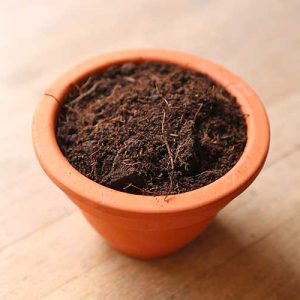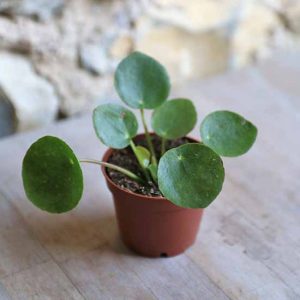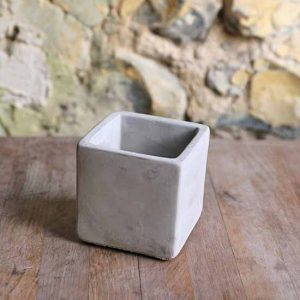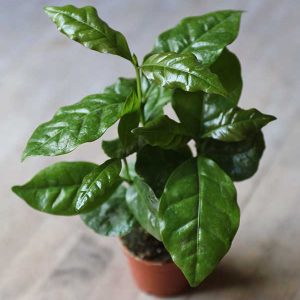HOW TO CARE FOR YOUR PILEA PEPEROMIOIDES (CHINESE MONEY PLANT)
THE CHINESE MONEY PLANT
Pilea Peperomioides AKA Chinese Money Plant / Pancake Plant
If you’re a busy professional or an exasperated parent seeking a well-behaved houseplant, I have some good news: the Chinese Money Plant might just be the one for you. Super low-effort, non-toxic and extremely rewarding, these quirky miniatures are often in high demand. Noted for their proud stems and waxy, coin-shaped foliage (which are supposed to bring good luck financially), these plants make a great addition to any home.
Where Does It Come From?
Unsurprisingly, (it is literally in the name), these pretty little plants are native to China and the dewy forests of the Far East. This, combined with their rounded, coin-like leaves, are what earned the plant it’s well known nickname from travelling botanists of the ‘Chinese Money Plant’.
Why Should I Get One?
- A major pro of the Chinese Money Plants is that they are genuinely fabulously easy to care for. When you get the environmental conditions for these little guys just right, they promptly reward you with rapid growth.
- Chinese Money Plants are also quite easy to propagate, so before long you could be the proud owner of a petite Pilea Peperomioides family!
- Non-Toxic
How Big Can It Grow?
One of the major joys of the Chinese Money Plant is that when you nail the correct conditions for it, the plant quickly thrives. With a monthly feed, good watering and the right amount of light, these plants can get pretty big! Most people grow them to a medium size of around 1-2 feet high, then trimming them regularly to keep them in shape.
Where Should I Keep It?
With large, waxy leaves which are remarkably tough, these plants can withstand pretty strong sunlight and in fact, really quite like it. Extremely prolonged direct sun might be a little too much for them and burn spots can occur on the leaves, but on the whole these little beauties require a lot of sunshine. A telltale sign your plant isn’t happy with the amount of light it is getting is that the leaves will begin to curl and ripple. Moving the plant to a brighter spot will quickly remedy this! Chinese Money Plants noticeably turn towards the nearest light source, so if you want even growth all round the plant, you will need to turn the pot regularly. Lastly, these plants do not do well in excessively humid conditions, so they’re better suited to a lounge or bedroom than the moist air of a kitchen or bathroom.
How Often Should I Water It?
Requiring one or two large waterings a week, Chinese Money Plants enjoy a good drink. That being said, be careful not to overwater this plant. We advise waiting until the soil has almost dried out completely between waterings in order to ensure you don’t overwhelm the roots. The plants need even less attention during the chillier winter months. The standard reaction to thirstiness or overwatering is for the large, flat leaves and stems to droop, so before reaching for the watering can automatically, test the moisture of the soil and ascertain whether your plant is thirsty or overly soggy!
Pet-safe, non-toxic, easy to love, quick growth and stunning leaves. What’s not to like? Since exploding onto botanical Instagram a few years ago, these easy-going houseplants have been in super high demand and it is so easy to see why. Get in touch today to grab yours – then go forth, grow and propagate!
-
Quick View
Baby Chinese Money Plant (Pilea Peperomioides)
Baby House Plants, Mini Terrarium Plants, View All £6.00 -
Quick View
-
 Sold OutSelect options This product has multiple variants. The options may be chosen on the product page quick viewQuick View
Sold OutSelect options This product has multiple variants. The options may be chosen on the product page quick viewQuick ViewHouse Plant Soil Suitable for Terrariums
View All, Terrarium Moss, Decor + Tools, Soil, Grit + Gravel £2.00 – £2.50 -
Quick View



